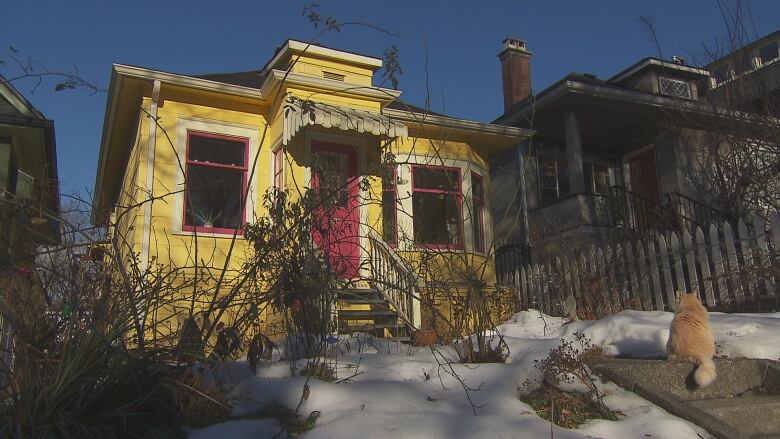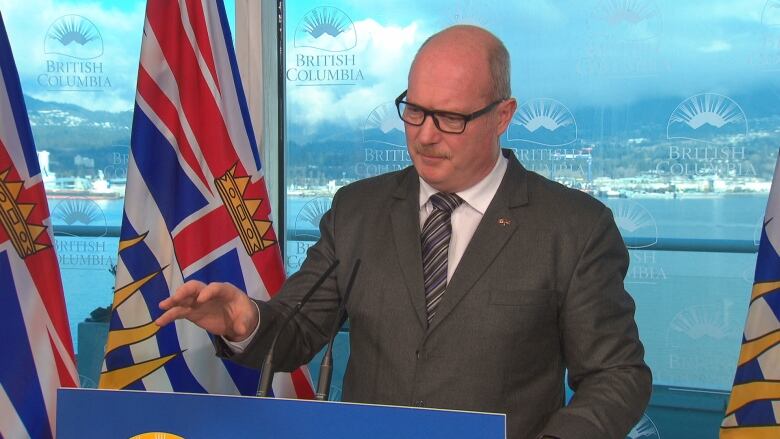Homeowner grant is good politics but may be bad policy
A Sauder School of Business economist says tax doesn't help those that need it

From the time the homeowner grant was introduced by the Social Credit Party in 1957, it has faced the same question: is it more than just politics?
Critics have argued there are more effective ways to spend taxpayer dollars.
As his government announced an increase in the grant from $1.2 million to $1.6 million Tuesday,Finance Minister Mike de Jong admitted history hasn't helped the political fortunes of those proposing to get rid of it.
"I have been around long enough to, I think, to what was 20 years ago, speculating during a particular campaign about replacing the homeowner grant mechanism. It didn't go over very well,"he said.
Good politics, bad policy?
DeJongconcedesthe last time his own party, the B.C. Liberals, grappled with the idea of getting rid of the grant in 1996, they lost the election.
It's a political defeat the B.C. Liberals don't want to revisit and they're willing tospend the grant's $821-million-a-year costto avoid finding out.

It'salso whythe B.C. Liberals, four months away from an election,are not considering making any changes to a grant that benefits millions of homeowners.
But although it may make good politics, UBC SauderSchool of Business economist Tom Davidoff, like severalof his colleagues, says it's just not good policy.
"Ourproblemin Vancouver is that people don't makeenoughmoney to buy homes and taking money from the general taxpayingpublic and giving it to people who already own homes isa step in exactly the wrong direction," said Davidoff.
"You are increasing the price of housing, because you are giving a tax advantage.You are giving money to people who already own homes and that has to be taken from somehwere."
Other ways to target affordability
The original purpose of the homeowner grant was to help support British Columbians who saw their property taxes going up. But now the $570 rebate basically goes to every homeowner. DeJong predicts91 to 94 per cent of homeowners will take advantage of it this year.
Davidoff says it is hard to argue that a policy that goes to so many people is targeted at those that really need the help.
"A much more efficient way to improve affordability would be to take the same amount of money and reduce income or sales taxes,ideally targeted towardhigh costs markets," said Davidoff.
"You could say [because]you live in Vancouver, Victoria or Metro Vancouver, you owe less income taxes."
NDP agrees grant should remain
But the B.C. Liberals aren't the only ones aware of the political ramifications of either keeping the homeowner grant or getting rid of it entirely.
B.C. NDP housing critic David Eby has spent more than a year attacking the provincial government's policies on housing affordability. This, though, is one issue he is mostly leaving alone.
Eby is quick to point out a B.C. NDP government would not get rid of the grantbutwould tweak the program if it didn't have a profound impact on most taxpayers.
"I just don't think that people that don't pay income tax in British Columbia should be eligible for this grant," said Eby.
"I am talking about people who are eitherpermanent residentsor citizens who are buying property in B.C. but not paying income tax in B.C."
But imagine the sort of thing the B.C. NDP or the B.C. Liberals could do with more than $80 million. One of those issues could be further support for those renting in the province, especially in areas like Metro Vancouver, Victoria and Kelowna where vacancy levels are around oneper cent.
But Eby says the NDP's solution is not in moving the money from the grant but infinding other funds or strengthening renting regulations, which, he says, costs very little.
"The grantfails to recognize the significant number of people who are renting," said Eby. "I think the gap around not just benefits likea grant for rentersbut also even basic protections for renters is an ongoing issue and blind spot certainly for this government."
And whilethere are many thingson which Eby and the B.C. Liberals disagree, they both concede that with anelection looming,tinkering with the homeowner grant is not a good idea.












_(720p).jpg)


 OFFICIAL HD MUSIC VIDEO.jpg)
.jpg)



























































































